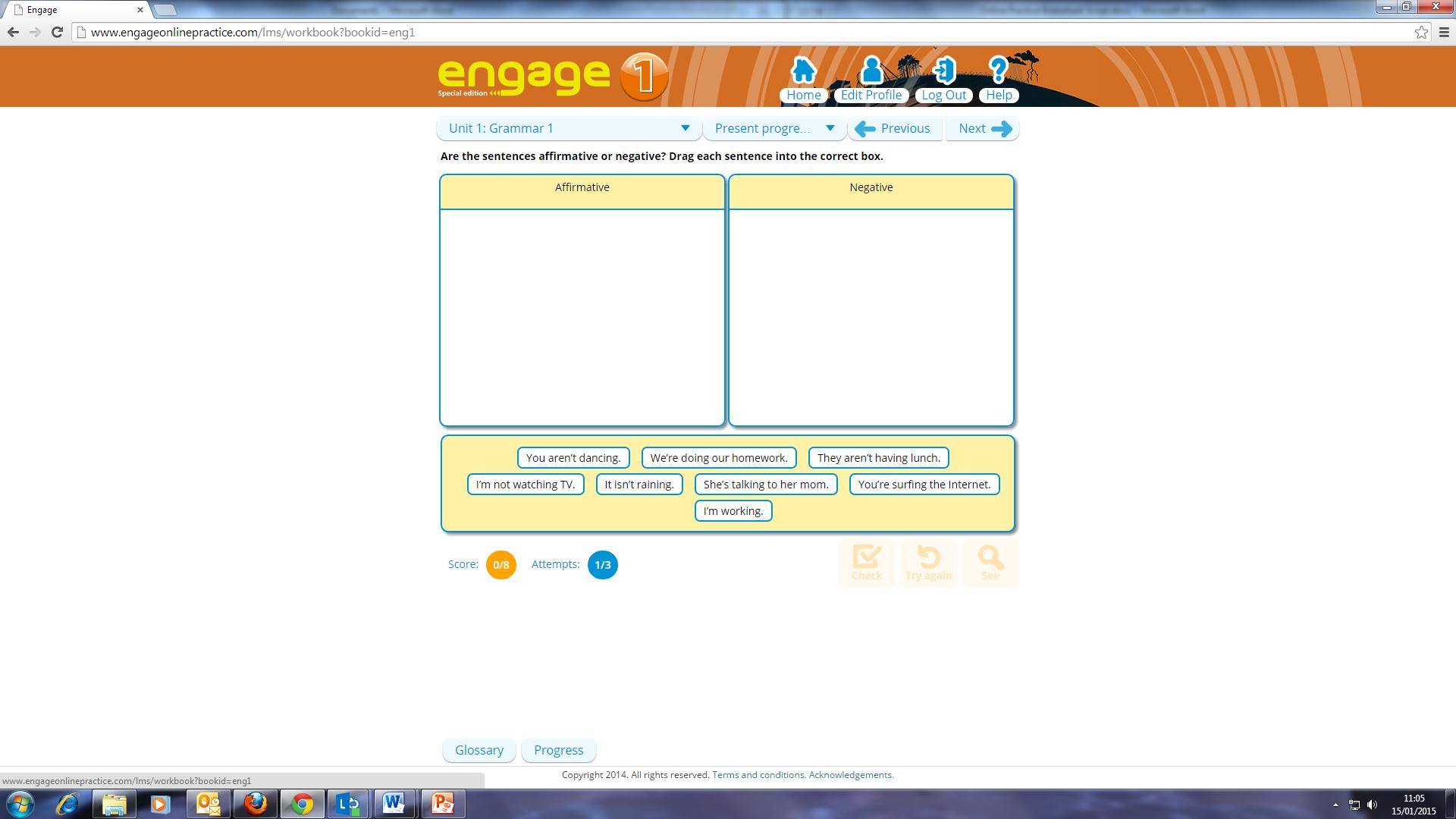 For many teachers the extension of language learning outside the classroom can really benefit their students, but how can you be sure they’re using the right materials to further their practice? Freelance teacher trainer, Zarina Subhan-Brewer, looks at how Oxford Online Practice can complement their classroom activities.
For many teachers the extension of language learning outside the classroom can really benefit their students, but how can you be sure they’re using the right materials to further their practice? Freelance teacher trainer, Zarina Subhan-Brewer, looks at how Oxford Online Practice can complement their classroom activities.
“For the things we have to learn before we can do them, we learn by doing them.”
– Aristotle
How do we get students to continue practicing the things we want them to learn outside of the classroom? Normally, we give them homework and hope they do it. We no longer only have workbooks to depend upon for further practice, we have online material nowadays too. I don’t know if you’ve ever tried to learn a language online, but there’s a lot out there.
Parents, understandably, will assume that if their child is on an educational website that they don’t need to be monitoring their child and will feel happy that their child is learning. However, much of what is out there seems very ad hoc, with materials jumping about from grammar point to grammar point and sometimes with a very strange focus on some obscure vocabulary. The quality and suitability of some visual imagery out there being used for educational purposes, may not be ideal. So why and how can students use online learning safely and effectively?
Firstly, Oxford Online Practice is not random – it is designed to complement, but not duplicate, what is being studied in the book. It looks like the book, with similar or identical images, but the activities are additional to those in the textbook and workbook. The units cover the same topics and language content, with an opportunity to extend language and interact with it on the screen, for example clicking for further information, or dragging to match a response to a question / vocabulary / grammar item.

When it comes to differentiated learning, online textbooks are very powerful tools. I’ve always found that it requires a lot of preparation and organisation to constantly have something up my sleeve for the students who are picking up language quicker. While helping those requiring more time to grasp things, you have to keep the others occupied, right? All this with the dilemma that you don’t want the quicker ones getting too ahead in the book/workbook, while at the same time you don’t want your slower students to feel they’re having less fun and are ‘behind’. The beauty of online textbook material is that not only is it relevant and related to the topic of the book, your students can also do additional activities without the knowledge of whether their peers are ‘better’ than them or not. Because of the nature of the technology, a simple click of the mouse in a computer lab, or a tap on the tablet in the classroom gives them access to further practice of any sort.
Previously, reading and writing were the only skills that could be practically improved outside class, which meant students rarely heard any English outside the four walls of the classroom. Nowadays it is possible to assign an additional listening activity, without controlling a CD player or standing at the computer at the front of the class. So if you feel some students could do with going over a listening activity again in more detail, you can assign it to them.
Did you know students can even record themselves if they’re working on a computer / tablet? This means that students get the chance to really listen to their own pronunciation and compare it to the native speaker recordings on the Online Practice platform, so they learn much more in terms of both listening and speaking.
Online Practice takes homework to a whole new level, with students assuming more responsibility for their learning – autonomous learning at its best. But this isn’t to say that the students are simply left to their own devices – teachers can allocate particular activities, tailoring each class or student’s progress to suit their needs.
You can also organize your students into particular online groups. You can then monitor which exercises have been completed by which students and also what scores they achieved on each activity they try. Without collecting in physical work and marking it (because it is marked as soon as the student clicks on the ‘Submit’ button), you have a record of names, activities completed and grades for each student. This will save you from hours of administrative tasks, leaving you more energy for the actual teaching.
So your students will find varied and engaging activities that allow them to practice exactly the same language areas that you have been working on in class, with the added bonus of it being visually familiar. By allocating activities to students, they feel their individual needs are being met. Parents can breathe easy knowing that their children are on carefully designed websites that are entirely appropriate learning tools. And you as a teacher have more time to assess, monitor and actually teach. I’d say that was a win-win-win situation, wouldn’t you?!
These features are all available on the Online Practice components for the courses pictured below. Features and/or capabilities may differ for other Oxford courses.



Can we sample this somehow? Would love to play around with it a bit. I especially like the idea of allowing students to move at different speeds. For example, it would be cool if the reading/listening started at the intermediate level, but students could access a harder version of the same material online.
Jeremy
stuartmillenglish.com
Nice thought for speedy method of increasing English language skills quickly……..
This is just wonderful. English language learning should not stop once the student is outside the classroom. Students will have more confidence in giving themselves assessment exercises since they do not have any benchmark to compare themselves during the evaluation, and giving them freedom to practice on their own without fear of peer pressure will certainly encourage them to do better with English.